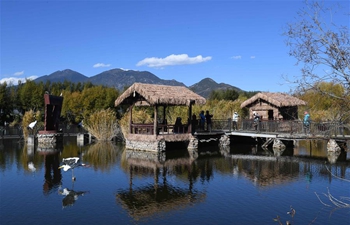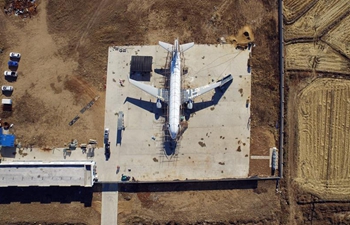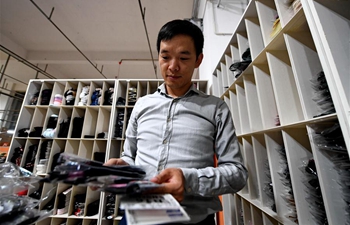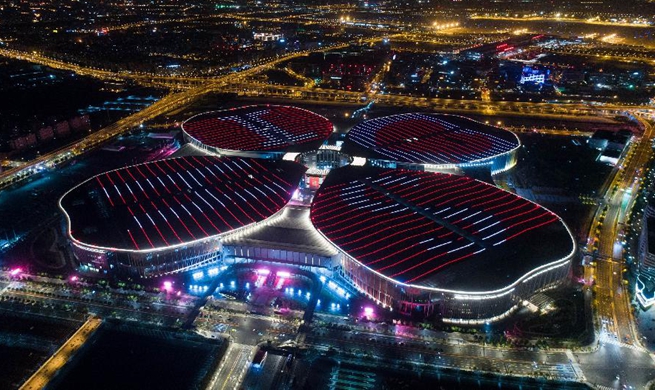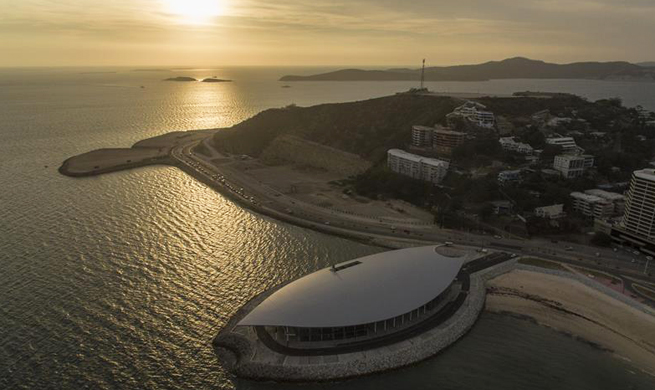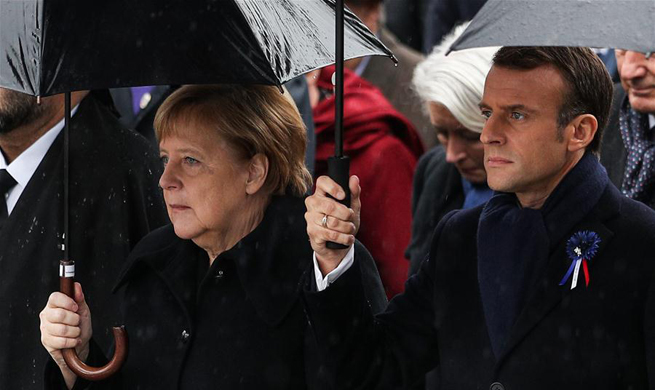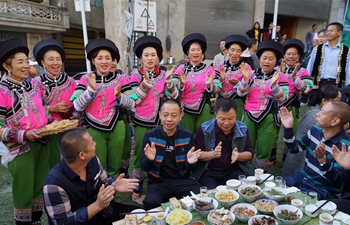by Xinhua writers Zhao Qing, Gao Jie
SINGAPORE, Nov. 12 (Xinhua) -- The 33rd summit of the Association of Southeast Asian Nations (ASEAN), being held here on Nov. 11-15, is expected to charter a new course for further regional integration and ASEAN's cooperation mechanisms with external partners.
Under the theme of "Resilient and Innovative" set by this year's rotating chair Singapore, the summit will focus on strengthening unity in various areas in the face of growing uncertainties in the global strategic landscape, as well as leveraging on innovation and technology to improve the lives of the people.
INTEGRATION, COMMUNITY BUILDING CORE ISSUE
The summit will review progress made in integration and community building efforts including some of the major initiatives such as the "ASEAN Community Vision 2025" and other important regional initiatives such as the "Master Plan on ASEAN Connectivity 2025," and the "Initiative for ASEAN Integration."
The ASEAN leaders will also endorse cross-pillar programs such as the "ASEAN Communication Master Plan 2018-2025," Secretary-General of ASEAN Lim Jock Hoi told Xinhua in a recent written interview.
Since early this year ASEAN has intensified efforts to advance its trade facilitation and virtually all of intra-ASEAN tariffs have been eliminated by now. ASEAN is also finalizing an "ASEAN Trade in Services Agreement."
Significant progress has also been made on initiatives related to e-commerce and the digital economy. The ASEAN Secretariat has undertaken an assessment of ASEAN readiness for the Fourth Industrial Revolution.
Moving forward, key priority is to fully implement the ASEAN Economic Community Blueprint by 2025, deepen market integration, strengthen cross-pillar and cross-sectoral collaboration, and address new emerging issues requiring the region's attention such as the Fourth Industrial Revolution.
On the political and security fronts, the summit will touch upon cooperation in countering terrorism, preventing violent extremism and transboundary cyber threats, and enhancing maritime cooperation in the region.
Issues in the socio-cultural field as well as in enhancing ASEAN connectivity will also be discussed.
ASEAN'S EXTERNAL RELATIONS
The 21st ASEAN Plus Three (APT) summit, East Asia Summit, as well ASEAN Plus One summits, to be held during the 33rd ASEAN summit, are important parts of ASEAN's external relations mechanisms.
ASEAN emphasizes the important role of the APT cooperation framework in promoting peace, security, stability and prosperity in East Asia and is ready to further strengthen the East Asia Summit (EAS) as a leaders-led forum for dialogue and cooperation on broad strategic, political and economic issues of common concern.
The 10 ASEAN countries are deeply concerned over the rising tide of protectionism and anti-globalisation sentiments and are expected to reiterate their continued support for the multilateral trading system and reaffirm their commitment to uphold the open regionalism principle while maintaining ASEAN centrality.
The Regional Comprehensive Economic Partnership negotiations have been intensified at all levels and ASEAN Secretary-General Lim said he was optimistic that negotiations will achieve substantial conclusion by the end of this year.
ASEAN was established in August 1967 by Indonesia, Malaysia, the Philippines, Singapore and Thailand. The group was later expanded to include Brunei, Cambodia, Laos, Myanmar and Vietnam.
CHINA-ASEAN STRATEGIC PARTNERSHIP AT NEW STARTING POINT
China-ASEAN Strategic Partnership, launched in 2003, marks its 15th anniversary this year. It is among the most dynamic and substantive dialogue partnership for ASEAN.
China has remained ASEAN's largest trading partner since 2009. China is also ASEAN's third-largest source of foreign direct investment. The ASEAN-China Free Trade Agreement has been upgraded and work is underway for its implementation to bring further benefits to ASEAN and Chinese businesses.
The two sides have properly managed sensitive issues and disputes through dialogue and negotiations, especially on the issue of the South China Sea. In August this year, a single draft negotiating text of the Code of Conduct (COC) in the South China Sea was reached, another significant progress on the negotiations of COC.
China and ASEAN have also made great strides in socio-cultural cooperation.
As both sides are committed to driving forward this dynamic partnership, the "ASEAN-China Strategic Partnership Vision 2030" statement is expected to be adopted at the 21st ASEAN-China summit to lay a solid foundation for the strategic partnership to advance further in the coming decade.
"The Vision reaffirms the commitment of both sides and chart the direction to advance the ASEAN-China partnership to reach new heights in the coming decade as both sides seek to further explore potential for cooperation," Lim said.

